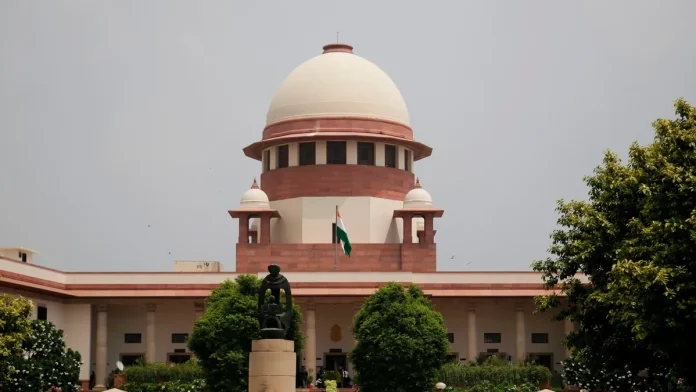The Supreme Court, led by Chief Justice DY Chandrachud, made a big decision about Jammu and Kashmir. They supported the government’s choice to end the special status given by Article 370. The court said Article 370 was a temporary thing to help Jammu and Kashmir join India. The Chief Justice stressed that Jammu and Kashmir should be treated like other states and asked for elections by September 30, 2024. Even though Jammu and Kashmir lost some control when it joined India, the court explained why the special status stayed. This decision cancels Article 370, taking away Jammu and Kashmir’s unique laws and decision-making powers, and ending its special status.
The court argued that Jammu and Kashmir’s constituent assembly, formed solely to frame the constitution, was not intended to be permanent. Chief Justice Chandrachud stated that the assembly’s recommendations were non-binding on the President. The court explained that while the special conditions for Article 370 ceased with the constituent assembly, the situation in the state persisted, justifying the article’s continuation. This ruling exemplifies asymmetric federalism, citing examples like Articles 371A to 371J providing special arrangements for different states.
The three separate judgments delivered by the bench underscored the complex nature of the case. Chief Justice Chandrachud, along with Justices BR Gavai and Surya Kant, authored one judgment. Another concurring judgment was given by Justice Sanjay Kishan Kaul, and a third by Justice Sanjiv Khanna, concurring with the former two. The removal of Article 370 stripped Jammu and Kashmir of its constitution and exclusive decision-making powers, ending its special status.
Article 370 granted Jammu and Kashmir autonomy in decision-making, except in defence, communications, and foreign affairs. Its annulment resulted in the state losing its unique status. Article 35A, embedded within Article 370, which granted the state the authority to define permanent residents and confer special rights, also ceased to exist.
The Supreme Court clarified that it deemed unnecessary an examination of the validity of Jammu and Kashmir’s reorganisation into a Union Territory, as it was a temporary arrangement until the election and reinstatement of statehood. This judgment marks a significant milestone in the constitutional landscape, affirming the constitutional validity of the Center’s decision to revoke Article 370 and paving the way for Jammu and Kashmir’s equal treatment as a Union Territory.
The ruling has profound implications for the region’s political and constitutional landscape, with the removal of Article 370 reshaping Jammu and Kashmir’s legal status within the Indian Union. The court’s comprehensive explanations regarding the historical context and constitutional nuances provide clarity on the validity and consequences of the decision. As Jammu and Kashmir transition, the court’s directive for elections by 2024 emphasises the importance of swift political normalisation and restoration of democratic processes in the region.
In conclusion, the Supreme Court’s verdict on Article 370 signifies a decisive moment in India’s constitutional history. The removal of special status for Jammu and Kashmir aligns the region with the constitutional framework applicable to other states, affirming the principle of equal treatment. This ruling carries far-reaching implications for the socio-political landscape of Jammu and Kashmir, setting the stage for a new era in the region’s governance and constitutional identity.
- Bournvita Loses Health Drink Tag: Here’s Why - April 16, 2024
- Vodafone Idea’s Upcoming Fundraising: Aiming to Collect ₹18,000-20,000 Crore - April 11, 2024
- Is the Indian Stock Market Open Today? - April 11, 2024



